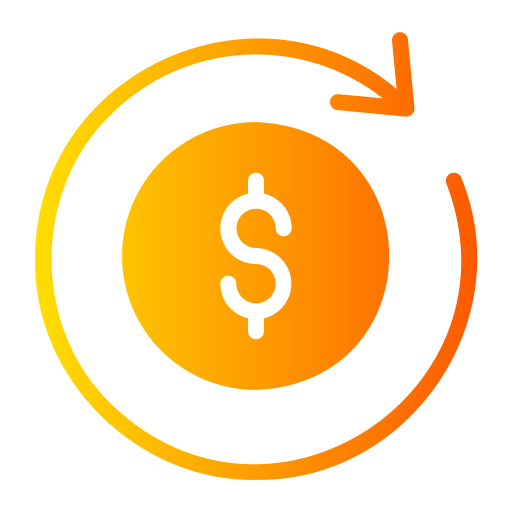As an independent artist, getting support from DJs can be a crucial step in building your career. Not only does DJ support increase your visibility and credibility, but it can also help you reach new audiences and potentially get booked for live performances.
However, with so many artists vying for the attention of busy DJs, it can be challenging to stand out and get the support you deserve. In this article, we'll explore the steps you can take to increase your chances of getting supported by DJs and getting your music heard by new fans.
Whether you're just starting out or you've been in the music industry for a while, these tips can help you take your career to the next level. So, if you want to know how to get supported by DJs, this article is for you.
Jump To Section
1. Research DJs who play your genre of music
2. Create a professional press kit
3. Personalize your outreach
4. Follow up, but don't be pushy

Researching DJs who play your genre of music is an important step in getting their support for your music. By targeting DJs who already play music similar to yours, you increase the chances that they will be interested in your music and more likely to support it. Here are some tips for finding DJs who play your genre:
- Utilize music blogs and websites: There are many music blogs and websites that focus on specific genres and feature new music from up-and-coming artists. These can be great resources for finding DJs who play your genre. For example, if you make electronic music, you can search for blogs and websites that cover electronic music and see which DJs they feature.
- Follow music festivals and events: Many music festivals and events showcase a wide range of genres, and they often announce the lineups well in advance. By following these events, you can see which DJs are playing and get an idea of which ones might be interested in your music.
- Use social media: Social media platforms like Twitter, Instagram, and Facebook are great for finding DJs who play your genre. Follow DJs, music industry professionals, and music blogs to stay up-to-date on what's happening in your genre and to see which DJs are active and engaging with their followers.
- Connect with other artists in your genre: Other artists in your genre can be valuable resources for finding DJs who play your genre. They may have worked with certain DJs in the past or have connections with them. Don't be afraid to reach out and ask for recommendations or introductions.
- Make a list of potential DJs: Once you have found a few DJs who play your genre, it's a good idea to make a list of them. This will allow you to keep track of who you have reached out to and what their response was. You can also use this list to prioritize which DJs you want to target first and to track your progress.
- Consider the size of the DJ's following: While it's important to focus on DJs who play your genre, you should also consider the size of their following. If a DJ has a large following, they may be able to expose your music to a wider audience. However, it's also important to remember that smaller DJs can be just as influential, especially in niche genres.
- Look for opportunities to collaborate: Another way to get the attention of DJs is to look for opportunities to collaborate with them. This can be a great way to build a relationship and get your music in front of their audience. For example, you might offer to remix one of their tracks or collaborate on a new song.
- Keep an eye out for radio shows and podcasts: Many DJs host their own radio shows or podcasts, which can be great opportunities to get your music heard. Look for shows that feature your genre and reach out to the DJs to see if they would be interested in playing your music.
Creating a professional press kit is an important step in getting support from DJs. A press kit is a collection of materials that provides information about you and your music to potential supporters, such as DJs, music industry professionals, and media outlets.

A well-crafted press kit can make a strong impression and increase your chances of getting the support you're seeking. Here's what you should include in your press kit:
- A bio: A bio is a brief summary of your background and accomplishments as an artist. It should be concise and to-the-point, highlighting any notable achievements or milestones you've reached in your career.
- Press photos: Press photos are high-quality images that showcase your image and personality as an artist. These should be professional-looking and visually appealing, and they should accurately represent your style and aesthetic.
- Links to your music: Your press kit should include links to your music, such as streaming platforms, SoundCloud, and Bandcamp. Make it easy for DJs to listen to your music by providing a variety of links and making sure they are up-to-date.
- Contact information: Make sure to include your contact information in your press kit, such as your email, phone number, and social media handles. This will make it easy for DJs to get in touch with you if they are interested in your music.
- A list of notable achievements: If you've achieved any notable milestones in your career, such as performing at a music festival or getting airplay on a radio station, make sure to include them in your press kit. These achievements can help establish your credibility as an artist and make you more appealing to DJs.
- A press release: A press release is a brief statement that provides information about a new release or achievement. If you have a new EP or album coming out, or if you've recently achieved a notable milestone, consider including a press release in your press kit.
- A list of media coverage: If you've received any media coverage in the past, such as articles or reviews in music blogs or magazines, include them in your press kit. This can help establish your credibility as an artist and show DJs that you have a track record of getting your music heard.

Personalizing your outreach is an effective way to get the attention of DJs and increase your chances of getting their support. Rather than sending a generic message to a large list of DJs, take the time to craft a personalized message that speaks to the specific DJ and their audience. Here are some tips for personalizing your outreach:
- Explain why you think your music would be a good fit for the DJ and their audience: Show the DJ that you've done your research and understand their style and what their audience enjoys. Explain why you think your music would be a good fit for their sets and why their audience would enjoy it.
- Offer a non-intrusive way for the DJ to listen to your music: Don't just send a link to your music and expect the DJ to listen to it immediately. Instead, offer a non-intrusive way for them to listen to your music, such as a private SoundCloud link or a personalized playlist. This will make it more likely that they will actually listen to your music and consider supporting it.
- Be polite and respectful: Don't be pushy or aggressive in your outreach. Instead, be polite and respectful, and make it clear that you are interested in building a relationship with the DJ.
- Keep it brief: Don't write a long, rambling message. Keep your outreach brief and to-the-point, highlighting the most important information about you and your music.
Following up with DJs after your initial outreach is an important step in getting their support for your music.

However, it's important not to be overly persistent or pushy. Here are some tips for following up without being pushy:
- Wait a reasonable amount of time before following up: Don't follow up with a DJ immediately after your initial outreach. Give them a reasonable amount of time to respond, such as a week or two.
- Keep your follow-up brief and to-the-point: Don't write a long, rambling message. Remind the DJ of your initial outreach and why you think your music would be a good fit for their audience.
- Be respectful: Don't be rude or aggressive in your follow-up. Remember, the DJ is not obligated to respond or support your music, and it's important to respect their time and decision.
- Offer additional information or resources: If you have new music or achievements to share, or if you have additional resources that might be of interest to the DJ, consider including them in your follow-up. This can help keep your outreach relevant and demonstrate your commitment to building a relationship with the DJ.
- Don't follow up more than a few times: If you don't hear back from the DJ after a few follow-ups, it's important to respect their decision and move on. Sending multiple follow-ups can come across as pushy and may turn the DJ off from considering your music.
In conclusion, getting support from DJs is an important step in building your career as an independent artist. By taking the time to research DJs who play your genre, create a professional press kit, personalize your outreach, and follow up appropriately, you can increase your chances of getting the support you're seeking and take your career to the next level.
Remember, getting DJ support can provide valuable exposure and credibility, and it can help you reach new audiences and potentially get booked for live performances.
So, don't be afraid to put yourself out there and start reaching out to DJs to get your music heard. With the right approach and some persistence, you can achieve your goals and succeed in the music industry.
If you are looking for high quality samples and presets check out our collection here.
































